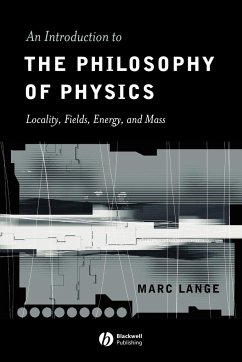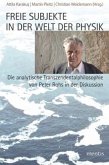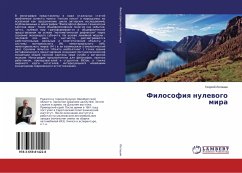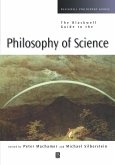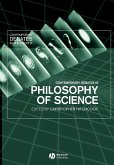Combines physics, philosophy, and history in a radical new approach to introducing the philosophy of physics.
Emphasizes the integral role that philosophical analysis plays in physics.
This book combines physics, philosophy, and history in a radical new approach to introducing the philosophy of physics. It leads the reader through several central problems in the philosophy of physics by tracing their connections to a single issue: whether a cause must be spatiotemporally local to its effect, or whether action at a distance can occur
Emphasizes the integral role that philosophical analysis plays in physics.
This book combines physics, philosophy, and history in a radical new approach to introducing the philosophy of physics. It leads the reader through several central problems in the philosophy of physics by tracing their connections to a single issue: whether a cause must be spatiotemporally local to its effect, or whether action at a distance can occur
"Marc Lange uses the philosophical tools of traditional metaphysicsto analyze examples drawn from electromagnetic theory and quantummechanics and in turn uses these examples to refine some of thebasic concepts of traditional metaphysics. The result is anexcellent introduction to the best sort of metaphysics, the sortthat is informed by our best physical theories." JeffreyBarrett, University of California, Irvine
"This is philosophy of physics that meets even Feynman'schallenge of making a difference for physics while it attainsHempel's standards of clarity. I can hardly imagine teaching thephilosophy of physics, at any level, from introductory to graduateseminar, without using this book!" Alex Rosenberg, DukeUniversity
"Eschewing the technical jargon of philosophy of science, thoughhe is a fluent contributor to journals and refers to current issuesin appropriate notes, Lange employs a breezy, common languagestyle, complete with discussion questions suitable for anundergraduate introductory class. [...] Highly recommended tophilosphically inexperienced physicists as well as current studentsin philosophy of science. Lower-division undergraduates throughfaculty." P.D. Skiff, Bard College, Choice, January2003
"An accomplished philosopher of science, Lange introduces theepistemological consequences of a central idea in physics -locality ... Eschewing the technical jargon of philosophy ofscience, though he is a fluent contributor to journals and feres tocurrent issues in appropriate notes, Lange employs a breezy, commomlanguage style, complete with discussion questions suitable for anundergraduate introductory class ... his introduction to the issuesvia concrete example is very effective and unique. Highlyrecommended to philosophically inexperienced physicists as well ascurrent students in philosophy of science." Choice
"This is philosophy of physics that meets even Feynman'schallenge of making a difference for physics while it attainsHempel's standards of clarity. I can hardly imagine teaching thephilosophy of physics, at any level, from introductory to graduateseminar, without using this book!" Alex Rosenberg, DukeUniversity
"Eschewing the technical jargon of philosophy of science, thoughhe is a fluent contributor to journals and refers to current issuesin appropriate notes, Lange employs a breezy, common languagestyle, complete with discussion questions suitable for anundergraduate introductory class. [...] Highly recommended tophilosphically inexperienced physicists as well as current studentsin philosophy of science. Lower-division undergraduates throughfaculty." P.D. Skiff, Bard College, Choice, January2003
"An accomplished philosopher of science, Lange introduces theepistemological consequences of a central idea in physics -locality ... Eschewing the technical jargon of philosophy ofscience, though he is a fluent contributor to journals and feres tocurrent issues in appropriate notes, Lange employs a breezy, commomlanguage style, complete with discussion questions suitable for anundergraduate introductory class ... his introduction to the issuesvia concrete example is very effective and unique. Highlyrecommended to philosophically inexperienced physicists as well ascurrent students in philosophy of science." Choice

